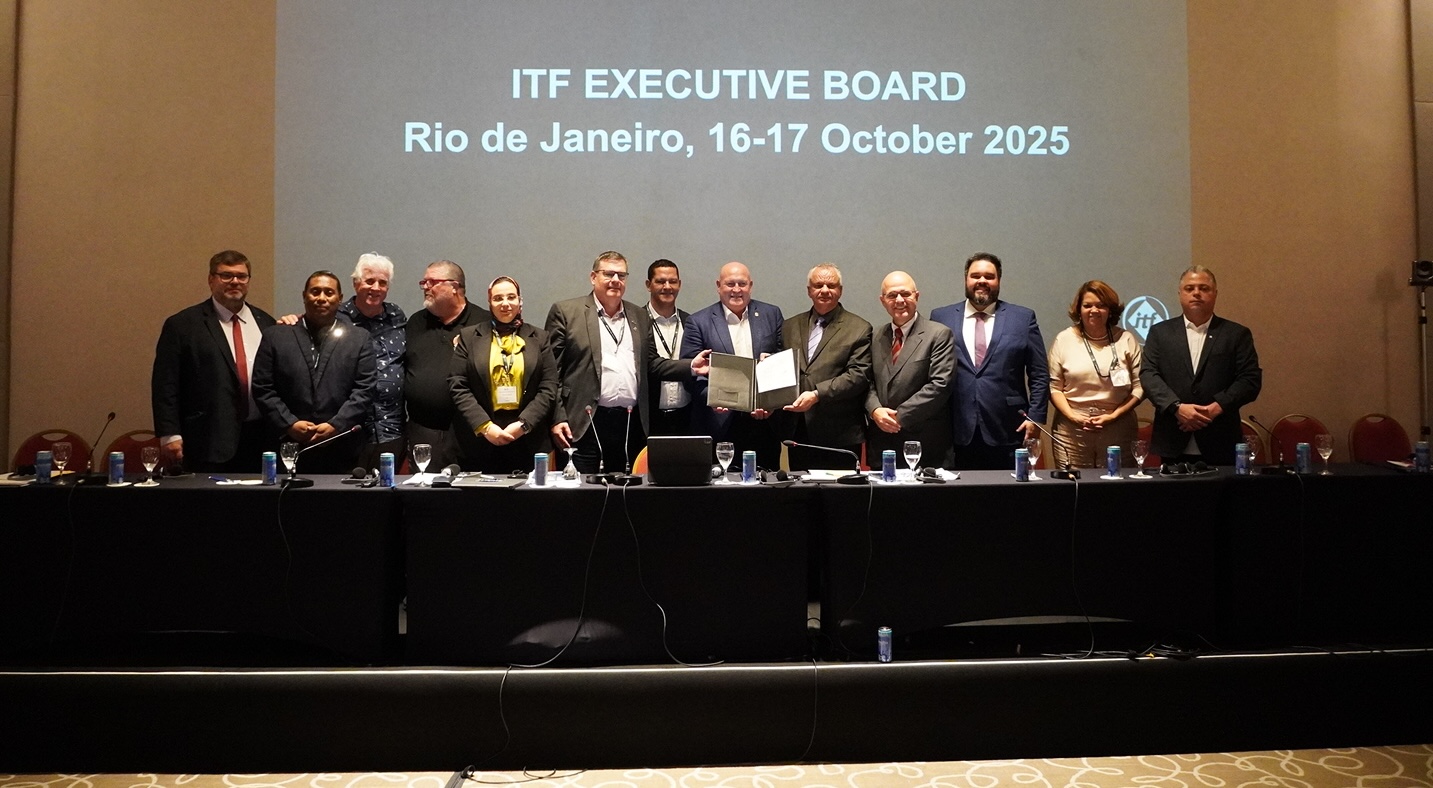
The International Transport Workers’ Federation (ITF) and Brazil’s leading transport trade union confederations – ITF-affiliated Confederação Nacional dos Trabalhadores em Transportes Aquaviário e Aéreo, na Pesca e nos Portos (CONTTMAF), Confederação Nacional dos Trabalhadores em Transportes Terrestres (CNTTT), and Confederação Nacional dos Trabalhadores em Transportes e Logística (CNTTL) – signed a landmark Memorandum of Understanding (MoU) today with the Federal Government of Brazil to establish strategic cooperation aimed at promoting a just transition for transport workers.
The ground-breaking agreement struck a month before Brazil hosts COP30 seeks to align public policies, training initiatives and climate adaptation strategies to technological and environmental changes. It has a focus on improving working conditions, protecting workers’ rights and advancing Brazil’s Nationally Determined Contribution (NDC), and will be run through Brazil’s Ministries of Ports and Airports, Transport, and Labor and Employment.
“This agreement marks a turning point for transport workers in Brazil,” said Stephen Cotton, ITF General Secretary.
“By prioritising decent work, safety, equality and training, it ensures that transport workers are not left behind in the face of climate and technological transitions. It’s a powerful commitment to protect rights while preparing workers for the future."
The agreement outlines shared goals including promoting equality and combatting discrimination, ensuring health and safety in the workplace, preparing for the future of work in light of emerging technologies, engaging with contractors to improve labour conditions, and fostering continuous workforce training.
Its implementation will be coordinated through permanent and sectoral forums covering maritime transport, ports, civil aviation, inland navigation, offshore wind maritime support, public transport, and road transport, as well as new transport modalities driven by technological evolution. These forums will include active participation from Government ministry and trade union representatives, who will meet regularly to monitor progress and propose necessary adjustments.
Edgar Díaz, ITF Latin America and the Caribbean Regional Secretary, said: “This agreement sets a precedent for all the transport sectors in the region. It shows how governments, unions and international organisations can collaborate to build inclusive, sustainable transport systems.
“Brazil’s leadership in promoting a just transition could inspire similar frameworks across the region.”
Among the commitments is the organisation of an international seminar on “Just Transition for Transport Workers” in preparation for COP30, bringing together government, unions and transport companies.
The MoU will remain in effect for five years, with the possibility of extension by mutual agreement. All actions will be carried out under mutual cooperation, respecting the institutional autonomy of each signatory.
ENDS
About the ITF: The International Transport Workers’ Federation (ITF) is a democratic, affiliate-led federation recognised as the world’s leading transport authority. We fight passionately to improve workers’ lives, connecting more than 730 affiliated trade unions from over 150 countries to secure rights, equality and justice for workers globally. We are the voice for more than 16.5 million transport workers across the world.
Media contact: Mark Dearn +44 7738 832 413 media@itf.org.uk
